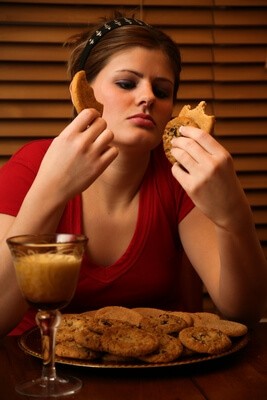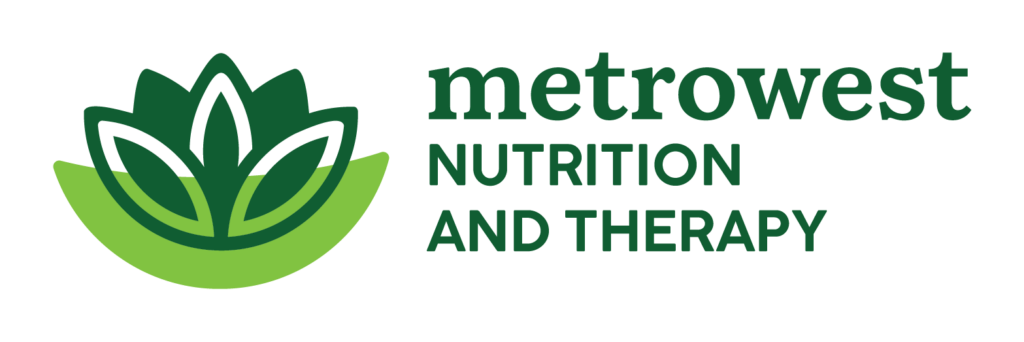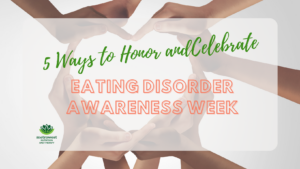
The Link Between PCOS and Binge Eating Disorder
PCOS (Polycystic Ovarian Syndrome) is a hormonal imbalance in female bodies resulting in the ovaries making more androgens (male sex hormones) than
normal. High levels of this hormone can affect the development and release of eggs during ovulation. It is also characterized by high levels of
insulin, a hormone responsible for maintaining blood sugar levels and converting starches and other food into useable energy. Researchers are still
unsure as to why women have it, but do see that genetics play a role. If your mother or sister has PCOS there is a higher chance you may have it
as well.
Symptoms of PCOS are increased facial hair, male pattern baldness, insulin resistance with following intense carbohydrate cravings, mood disorders,
weight gain, infertility and can possibly lead to diabetes, in which all have a dramatic effect on a woman’s self-esteem.
How do I know if I have PCOS?
PCOS is diagnosed by meeting 2 out of 3 of the following criteria:
• High levels of androgens
• Missed or irregular periods
• Many small cysts(fluid-filled sacs in the ovaries)
How does PCOS affect eating patterns?
Researchers have made a connection between weight cycling and inflammation and higher insulin levels. Women with PCOS already have
high levels of insulin and having too much insulin causes weight gain despite no change in exercise or diet. When our insulin levels increase,
our intense carb cravings increase as well. As with waiting too long to eat can cause low blood sugars, this ultimately causes strong cravings
for carbohydrates.
Women with PCOS are often at higher weights and may attempt to diet. This can set the dieting cycle in process – starting
a diet, staying on it for a while (typically 3-4 weeks) with some weight loss followed by a break in the diet and binge eating…and
the cycle repeats. A study published in the Lancet showed one-third of women with PCOS demonstrated binge eating behavior. Binge Eating
Disorder (BED) is the most common eating disorder affecting 2.8 million individuals in the U.S. If PCOS is coexistent with BED, it is very
important to consider how one can exacerbate the other especially due to the fact that women can turn to food to cope with emotional
pain.
How do I know if I have BED?
For a Diagnosis of BED you must meet the following criteria:
• Recurrent episodes of eating an abnormally large amount of food
• Feeling a lack of control during bingeing (i.e. can’t stop)
• Binge eating that’s associated with at least 3 of these factors: eating rapidly; eating until you’re uncomfortably full; eating large amounts when
you’re not hungry; eating alone out of embarrassment; or feeling disgusted, depressed or guilty after eating
• Binge eating at least 1x week for at least three months
• Binge eating that’s not associated self-induced vomiting, or other compensating behaviors to lose weight, such as excessive exercise or laxative
use
What can I do?
Here are a few things you can do to help manage PCOS and lessen the incidence of binge eating.
1. Start by getting enough fuel, by ensuring you are eating enough for your body. Insulin levels will go down as you are able to eat more frequently
throughout the day and prevent dips in blood sugars.
2. Eating every 3-4 hours, or 3 small meals and 2-3 snacks per day
3. Increase protein intake, can do this by incorporating protein at every meal and snack consumed.
4. Incorporate fiber from whole grains, fruits and vegetables which will help decrease the glycemic impact of the meal/snack.
5. Consider getting your hormone levels and insulin levels checked.
6. There are medications such as insulin-sensitizers that may help manage symptoms.
7. Check in with yourself. Are you being mindful with your eating patterns? Are you aware of why you eat and hunger and satiety levels? Some individuals
find keeping food journals help. Write down food consumed, feelings, and hunger/fullness levels experienced throughout the meal.
8. Improve your sleep patterns. If you think you may have sleep apnea, you may want to consider getting checked.
9. Set up a team to support you throughout this recovery, look into a therapist and Registered Dietitian.
10. Remember, healing your relationship with food is a journey. Be gentle on yourself and take it one day at a time.
Helpful resources for BED or PCOS:
https://www.nationaleatingdisorders.org/binge-eating-disorder
https://eatingdisorderhope.com
http://www.pcosfoundation.org/what-is-pcos
References:
http://www.eatingdisordersrecoverytoday.com/binge-eating-and-pcos-is-there-a-connection/



